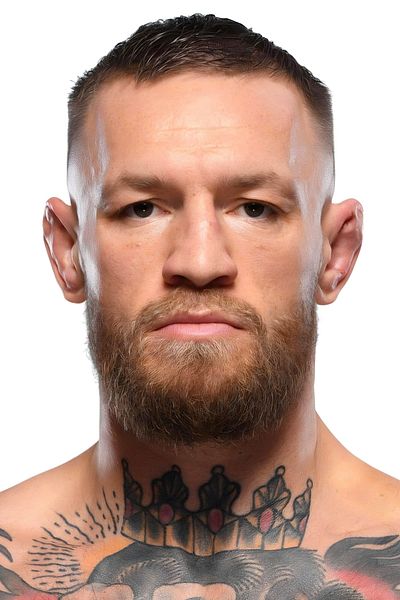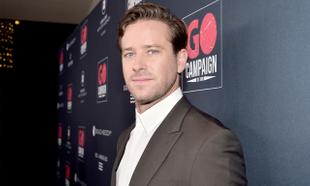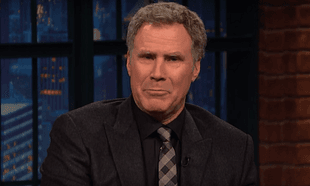The Irish Strength Institute is one of the premiere fitness facilities in the country, evidenced by the fact that their list of clients includes Conor McGregor, Cathal Pendred, Paddy Holohan and Carl Frampton, but there's more to them than just the elite level of athletes.
With four facilities in Dublin, John Connor, one of the directors of the ISI, and his team have built a company with an incredible reputation that is now one of the most respected authorities on training in the country. So how did it all come together? For John, it was a mix of hard work and good fortune:
"Myself and Eoin Lacey set up the ISI in 2004, and the idea was to get high-level sports people from around the world over to give talks and to learn from them. We set up our first gym in 2008 and Cathal Pendred was training in an MMA gym right next to us, so he just came in and was chatting to us about it. He told John Kavanagh about us and then he met with Eoin, and in late 2008 or early 2009, we started working with them. It's all grown from there.

John with IBF Super Bantamweight world champion Carl Frampton. Pic via ISI Facebook
"When the guys started no one was getting paid to do it. They weren’t getting paid to train and John was paying us out of his own pocket to work with them, so it’s been a long term investment. Six years we’ve been working with the guys, and it’s just starting to pay off now for all of us."
Striking that balance is something that John has carried through to the work he does when he trains some of Ireland's top athletes, not only those destined for greatness in the UFC, but Olympians who represent the country, and GAA stars at intercounty level:
"It's about balancing your workload with the rest of your life. You can only train as hard as what you can recover from. That’s the same across the board from pro athletes to people who go to the gym a few times a week. They might not be able to recover because they've got kids and they don’t get enough sleep or they've got stress in work; it’s across your entire lifestyle that you've got to manage your recovery.
"If you look at someone like McGregor who trains a lot, a lot of what he does is almost playing. He tries new techniques, he has a lot of fun, it's not as mentally tough. When we first started walking with them we did a lot of strength and conditioning but we found that was affecting their performance because they couldn't do as much technical work. We probably went a bit too far the other way after that where they weren't getting enough conditioning, but now we've managed to strike a balance, but we’re always adjusting it, always trying to tweak it and improve it, there’s no such thing as a perfect system".
For clients like Carl Frampton (pictured above) or Cathal Pendred, the biggest challenge is more or less the same as it is for the rest of us: managing the limited amount of time that they have, and a large part of that needs to be dedicated to recovering properly. When working with Frampton, John gets the most involved right before the fight: "I just do soft tissue work, and in the final week before the fight I’ll come in and do a lot with him to help with recovery. During the camp you pick up a lot of knocks, little knots here and there, and in the run up I'll help him to work through them. For the guys with John Kavanagh over at SBG, they're based in Dublin so we see a lot more of them. The challenge is to work them hard but not wear them out."
As the UFC begins to clamp down on the use of performance enhancing drugs, the way that fighters recover is going to be one of the areas that sees the biggest changes: "What you’re going to see now with the enhanced drug testing is more people are getting injured. When you're on stuff, people think it's about looking better, having bigger muscles and being stronger, but at the elite level, a lot of what they take is about recovery. We've been working on that for a long time without drugs, and we know how to manage recovery correctly. If you see our set up, the volume of hard training that we do is a lot lower than what other camps might do, but we've learned how to do it drug free and I think more people are going to start copying that type of set up, like what John Kavanagh has been doing and what we've been doing".

Pic via ISI on Facebook
Although combat sports is where the ISI has found the most success, their day job is about working with everyone and anyone who comes through the door of their facilities, and bringing their expertise to bear on what they want to achieve. "The majority of what we actually do is working with the general population. From the outside looking in it looks like all we do is work with these world class athletes, but that’s only a tiny percentage of it. Working with the fighters and those guys is fun because you can push limits and try new things, but there’s just as much if not more satisfaction to be gained from helping someone lose some weight and get healthier. At the moment we have a girl who has lost 53 kilos, so that’s life changing for that person. We've got people in their 70s who come here and their quality of life is so much better as a result"
For a lot of people, the first step is the most challenging one; finding the strength and the motivation to change their lifestyle can be a huge, daunting challenge, but John has some practical advice if that sounds familiar to you. "The easiest thing is just to get moving. We’re in April now, so in January everyone wants to get fit, and people try and completely change their lives, and they take on too much. When people walk in they say, "oh I want to lose weight", and I’ll always respond by asking them if they lose just one pound, will they be happy? They always say no".

"You need to figure out where you want to get to, and then you have to ask yourself two simple questions: what am I doing too much of now that I need to do less of, and what am I not doing enough of that I need to do more of? It can just be simple changes. Start out with one or two walks a week and just gradually build up. If you haven’t got a destination, you can’t arrive there. You don’t have to go straight there, you will make wrong turns, you will double back on yourself the odd time, you have to gradually build up over time. Making mistakes and reacting to them is a great learning experience too, it helps you to learn."
With their ISI cookery courses, John and his team recognise that the biggest challenge in keeping it is often on the nutritional side of things. While there's no magic trick that's going to suddenly turn your life around, there is a simple tip that most people won't find too difficult to implement that could help you start down the right road: "Eat more vegetables. Seriously. There are so many different diets out there between low carb, paleo, gluten-free...the list is endless and it can be confusing. Across the board, if you’re eating more vegetables, you’re doing well".
A lot of the diets and the eating plans that are fads are exactly that: fads. They don't stick around and they won't be something that you can hope to achieve, so John advises that you "pick something you can stick at too. If you pick the best nutritional plan in the world but you know that you're not going to be able to stick to it, then it's no use to you. It's better to do 70% than to try and do 100% and only do 10%".














































































